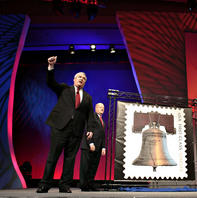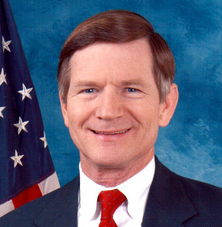
The
1998 Child Online Protection Act (COPA) has bounced back and forth
between lower courts and the Supreme Court ever since it was passed,
until
a permanent injunction
was ruled by Judge Lowell Reed
of the U.S. District Court for Pennsylvania in Philadelphia on 22 March.
This case had already been through the Supreme Court, in 2004:
The big split in the most recent Supreme Court COPA decision is between
Kennedy and Breyer, with Kennedy saying that there are plenty of choices
of relatively-effective (and certainly less-restrictive) filtering tools
out there for parents to use, and Breyer essentially saying that parents
are helpless so mandated shields of various kinds should be put in place
to protect kids. It turns out that, in fact, parents are knowledgeable
and are giving advice to their children about what to do online.
—
Pew on teenage online social networking practices,
by Susan Crawford, Susan Crawford blog,
Thu 19 Apr 2007 06:43 PM EDT
It turns out because the Pew Internet and American Life Project
did a study on
Teens, Privacy, & Online Social Networks,
in which they asked things like whether teens hold back information from their
online profiles and how much their parents know about what they’re doing.
That, plus what Judge Reed had already determined, which is that
there are pretty effective software screening products available
that parents can use if they want to.
Yes, even children benefit from open participation through the Internet.
Perhaps parents could learn from their children, too.
-jsq
 Joe Trippi thinks the Internet changes politics from spin to something better:
Joe Trippi thinks the Internet changes politics from spin to something better:




 Sometimes Bob Frankston makes me shake my head in wonder:
Sometimes Bob Frankston makes me shake my head in wonder:
 Susan Crawford hits the broadband nail on the head:
Susan Crawford hits the broadband nail on the head:

 The
The  Rep. Lamar Smith (D-Austin) recently (9 Apr)
said he didn’t understand net neutrality
Rep. Lamar Smith (D-Austin) recently (9 Apr)
said he didn’t understand net neutrality